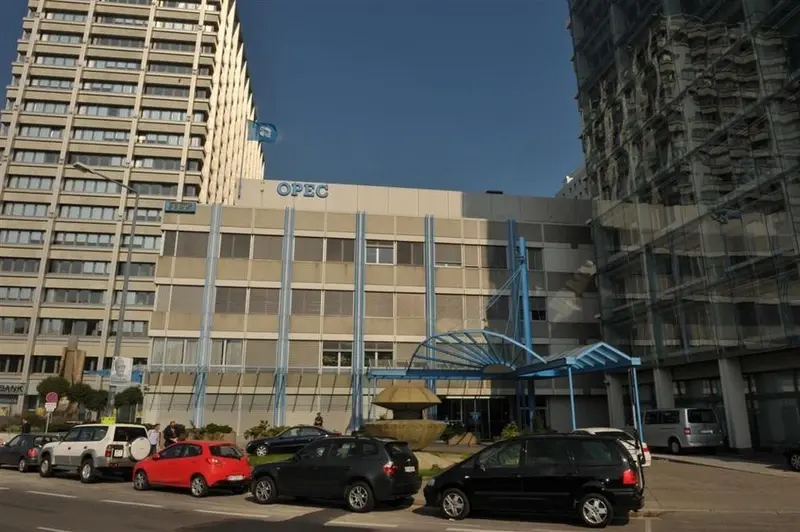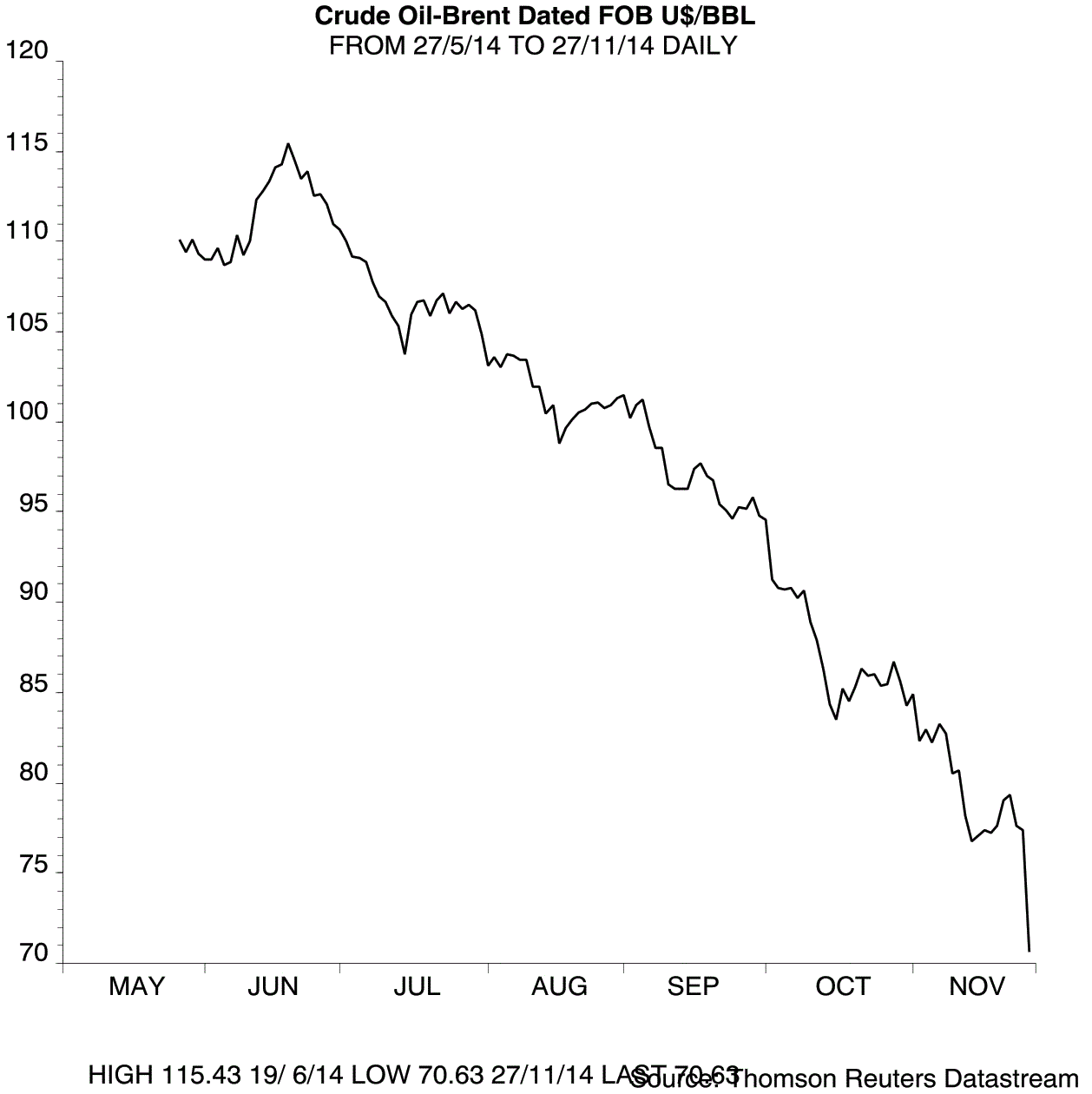
It is a sea of red in the oil sector this morning as investors absorb the news producers' cartel OPEC is keeping its production quota unchanged at 30 million barrels per day (with no plan to reconsider this decision until June 2015).
The European benchmark for oil prices, Brent, hit its lowest point since August 2010 in the aftermath - falling below $72 a barrel. This has implications for revenue, profits, cash flow and dividends from the sector - BG (BG.) slips 8.1% to 906.9p, BP (BP.) is down 3.2% to 412.7p and Royal Dutch Shell (RDSB) 3.3% to £21.91. In the mid cap space Premier Oil (PMO) is off 12.3% to 189.4p, Enquest (ENQ) 9.5% to 52.7p and Ophir Energy (OPHR) 11.5% to 139.8p. On the oil services side Wood (WG.) is down 5.5% to 597.5p and Hunting (HTG) 7.7% to 578p - we looked at the risks associated with these companies' exposure to US shale in this week's magazine.
Panmure Gordon comments: 'In the absence of any other supply restriction, we see little reason why Brent should not revisit the lows of 2008 (sub $40 a barrel) over the next few weeks and months, in the absence of a more pro-active stance from OPEC...
'In practice, we do not believe that OPEC will be able to maintain its current position in the event that oil markets fall as much as we believe is possible, since a relatively small cut in its production of around 5% would likely be sufficient to support a price of $90-100 a barrel, we estimate. While the next OPEC meeting has been set for June, it has the option to call an extraordinary meeting at short notice. We expect it to make use of that option well before next June.'
It is widely believed Saudi Arabia, which dominates OPEC, is looking to hold market share in the face of increasing unconventional output from the US. So-called shale or tight oil requires oil prices upwards of $77 a barrel to be commercial. Deutsche Bank says: 'In our view the decision throws the market balance into crisis most acutely in H1-2015 when seasonal demand is weak, and perhaps before US tight oil producers have had a chance to make any major adjustment to activity levels.
'We estimate that sustained pricing at $60 a barrel WTI (West Texas Intermediate the US yardstick for oil) is the level which would trigger a material shift in the trajectory of US production growth. However, producer hedging and the length of drilling contracts may retard the onset of lower drilling activity, thus lengthening the time required for supply to adjust.'





